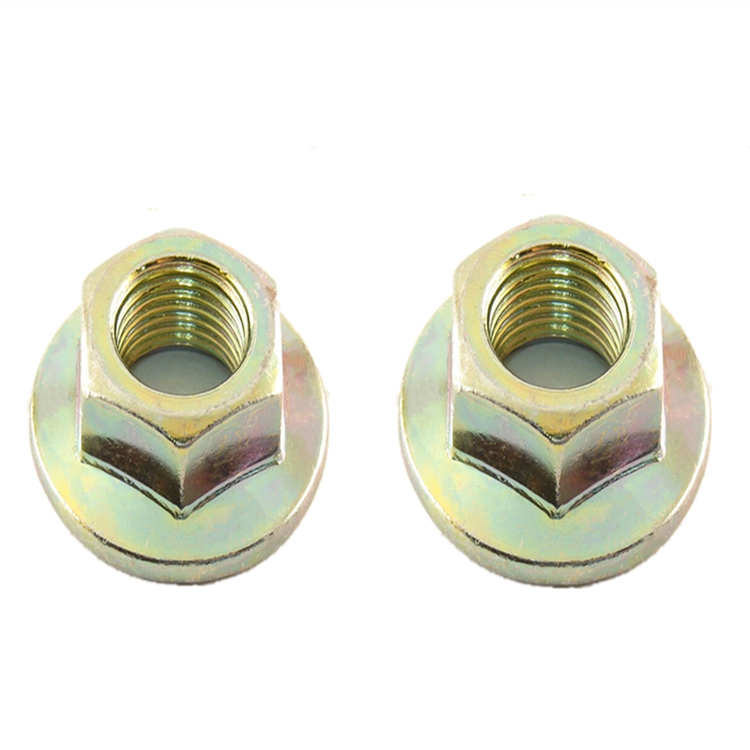FLANGE HEAD BOLTS
helmi . 15, 2025 17:02 Back to list
FLANGE HEAD BOLTS
In the construction and engineering sectors, angle bolts are indispensable components, renowned for their pivotal role in providing structural stability and support. For professionals within these industries, understanding the nuances, applications, and material compositions of angle bolts can significantly elevate the quality and longevity of their projects.
When sourcing angle bolts, working with certified manufacturers or suppliers is non-negotiable. They provide assurance not only in terms of compliance with industry standards but also in the traceability of materials. This traceability ensures that the bolts are produced in accordance with stringent quality controls, enhancing confidence in their performance. Verifying certifications such as ISO or other relevant industry standards can serve as an additional layer of trust. The installation process of angle bolts is yet another area where expertise is crucial. Improper installation can undermine even the best-engineered systems. Ensuring that the bolts are installed using the correct torque specifications and techniques is essential in maintaining the structural integrity of the construction. Engineers should employ skilled technicians familiar with the tools and technology required for optimal installation. For those looking to deepen their knowledge or refine their skills in the use of angle bolts, numerous resources are available. Professional courses and certifications can provide valuable insights into advanced techniques and emerging technologies in bolt design and application. Trade publications and industry forums can also serve as platforms for sharing experiences and problem-solving among peers. In the rapidly evolving landscape of construction and engineering, maintaining a reputation for quality and reliability hinges on the judicious selection and application of components such as angle bolts. By integrating rigorous material selection, ensuring compliance with engineering standards, and demanding excellence in installation practices, professionals can enhance both the efficiency and safety of their projects. For these reasons, expertise in the proper use of angle bolts is both an art and a science, demanding meticulous attention to detail and a commitment to lifelong learning.


When sourcing angle bolts, working with certified manufacturers or suppliers is non-negotiable. They provide assurance not only in terms of compliance with industry standards but also in the traceability of materials. This traceability ensures that the bolts are produced in accordance with stringent quality controls, enhancing confidence in their performance. Verifying certifications such as ISO or other relevant industry standards can serve as an additional layer of trust. The installation process of angle bolts is yet another area where expertise is crucial. Improper installation can undermine even the best-engineered systems. Ensuring that the bolts are installed using the correct torque specifications and techniques is essential in maintaining the structural integrity of the construction. Engineers should employ skilled technicians familiar with the tools and technology required for optimal installation. For those looking to deepen their knowledge or refine their skills in the use of angle bolts, numerous resources are available. Professional courses and certifications can provide valuable insights into advanced techniques and emerging technologies in bolt design and application. Trade publications and industry forums can also serve as platforms for sharing experiences and problem-solving among peers. In the rapidly evolving landscape of construction and engineering, maintaining a reputation for quality and reliability hinges on the judicious selection and application of components such as angle bolts. By integrating rigorous material selection, ensuring compliance with engineering standards, and demanding excellence in installation practices, professionals can enhance both the efficiency and safety of their projects. For these reasons, expertise in the proper use of angle bolts is both an art and a science, demanding meticulous attention to detail and a commitment to lifelong learning.
Next:
Latest news
-
Trusted Wire Bolts Suppliers - Durable & Reliable Solutions
NewsAug.04,2025
-
Wire Bolts Company | Premium Industrial Fasteners
NewsAug.03,2025
-
Top Wire Bolts Suppliers | AI-Optimized Fast Delivery
NewsAug.02,2025
-
Top Metric Wood Screw Companies | Durable & Reliable
NewsAug.01,2025
-
Premium Lawn Mower Handle Bolts Supplier | Fast Delivery
NewsJul.31,2025
-
Premium Silver Screws Supplier | High-Conductivity Fasteners
NewsJul.31,2025
